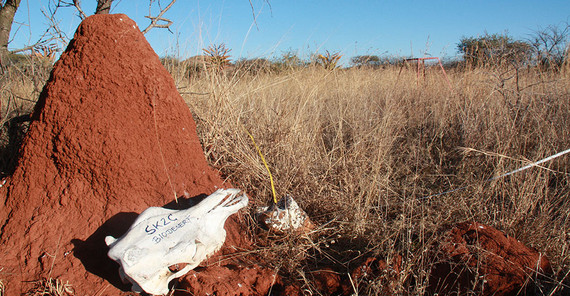Drylands are home to species and people that have developed unique strategies to cope with the high climatic variability that characterizes these ecosystems. At the same time, they support ca. 1 billion people who rely on grazing by livestock for their livelihoods. In these vulnerable ecosystems, the effects of grazing on ecosystem services are still poorly understood because grazing effects interact with the effects of climate, soil properties and biodiversity. A global network of dryland researchers, including two working groups from the University of Potsdam, now used a unique global dataset collected at 98 dryland sites on six continents to address this pressing question. Under the lead of ecologist Fernando T. Maestre, they could show that increasing grazing pressure reduces the provision of ecosystem services in warmer and species-poor drylands, while positive effects of grazing were observed in colder and species-rich areas.
Anja Linstädter, Professor of Biodiversity Research at the University of Potsdam, who is a co-author of this study, summarizes: “It seems to be key to explicitly consider the interactions between grazing and local environmental factors to understand the fate of dryland ecosystems under climate change and increasing human pressure.” Lecturer and ecologist Dr. Niels Blaum adds, “Our study provides empirical evidence of the positive links between herbivore abundance and ecosystem service provision under varying environmental conditions, plant and soil diversity, and grazing.” Florian Jeltsch, Professor of Plant Ecology and Nature Conservation at the University of Potsdam, particularly emphasizes, “The present work can contribute to better management of drylands, which are the largest rangelands on Earth.”
Link to Publication: Maestre, F.T. et al. “Grazing and ecosystem service delivery in global drylands”. Science (2022), doi: 10.1126/science.abq4062
Image: Due to a severe drought, forage was scarce in South Africa's Limpopo province, leading to the death of a cow in the year before the field survey was carried out by Anja Linstädter’s research team. This illustrates one of the key findings of the Science study: Grazing pressure may interact with climate change to reduce the delivery of critical ecosystem services such as forage production. © Anja Linstädter
Contact:
Prof. Dr. Anja Linstädter, Institute of Biochemistry and Biology, Director of the Botanical Garden of the University of Potsdam
Phone: +49 331 977-1920
E-Mail: anja.linstaedteruuni-potsdampde
Media Information 25-11-2022 / Nr. 127

